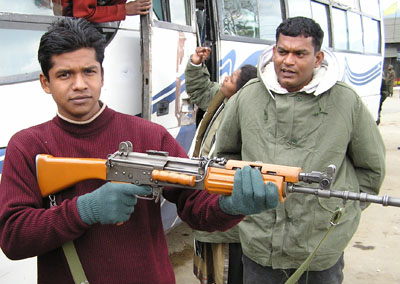Shit!
That’s what I wondered when I looked out, for the nth time, from the window of the Delhi Kalka morning Shatabdi. Trips to Delhi has been a little frequent lately, and wife is happier consequently [don’t think otherwise! Wifey stays in Delhi, and she is happy to find me frequenter there]. Mostly, on my way back to the hills, I catch the Shatabdi. That brings me to the issue of shit.
- India has the second largest population in the world, and soon we may be numero uno. Consequently, we shit an awful lot. Soon, we would be the shittiest country in the world, overtaking China [which, the capitalists have been telling us, is the shittiest place anyway].
- Even today, the majority in India do not have household or communal sanitary toilets. That means they shit wherever they find place. India is a mighty densely packed place – so what was once a fallow field has not turned into swarming slums. You throw a stone today, and there is a 12.3445% chance that it would hit a man, and 9.453% chance that it would hit a woman [being the shameless lot, men shit over a wider time horizon; women flock together in time while shitting]. Okay, I made that up, but you get the idea.
- The government has been trying to get people to shit in their homes, in sanitary toilets. Earlier, it gave money to the people to shit likewise. The people ate the money, and shat more – in the open. Some built the toilets. Since they could not understand what to do with it, they did whatever they could. Some converted the toilets into the store, some into an extra room. There are apparently cases where the toilet were converted into the domestic temples. That being the tale, one does no know what all this hoopla is about regarding the utterances of Jairam Ramesh and Narender Modi.
- Later the government thought that giving money on prepaid basis was not working. So they thought up the postpaid formula – build a toilet first, and then you can claim the money. This required a lot of brainwashing. In Himachal Pradesh, we thought we would do better – we cajoled the people into building toilets, and we did not pay them even. The money saved thus were ploughed back into community assets. We called the program Total Sanitation Campaign. The mandarins in the capital have now renamed it Nirmal Bharat Abhiyan, for whatever reason. We should take the bull by its horns and call it Hagandari Mukt abhiyan, as many practitioners actually call it.
- When we were probationers, we had our baptism in development process through this scheme, among others. My first trip in the field, on the very first morning in the district, was to a function honouring those who had won awards for sanitation [Nirmal Gram Puraskar]. When I became a BDO, my first substantive posting, my broke my public speaking virginity by talking about shit, literally. Any place with more than five persons would have me launch me into the topic of shit and shitting. Long lectures had to be devised. I was the missionary teaching all the gospel of shitting.
- My next posting was to the Spiti Valley, bordering the more famous Ladakh. Water freezes for half the year, leaving you high and dry literally [Spiti is at 3600 metres]. The geography makes people shit in what are called dry-toilets – toilets that uses no water for flushing, and seldom for ablutions. The toilet is just a room on the first floor with a hole in it, and shit just pops down on the ground floor. The shit is picked up and ploughed back in the farms the next summer as manure. Temperatures are seldom high enough for decomposition of the shit – that being the case, I am sure I have eaten and drunk an awful lot of shit. Spiti is part of Lahoul and Spiti district, and the former valley is famous for its potatoes. These potatoes are the seed potatoes that have been used throughout India for farming of potatoes for the chips and french fries industry. If you trace the MacDonalds and Lays potatoes, many would go back to Lahoul. So, chances are you have eaten a lot of shitty DNA in potatoes as well! During my posting there, I had the occasion to do a workshop on Ecological Sanitation, or EcoSan, in Trichy, Tamil Nadu. EcoSan is a technique of shitting and storing of shit wherein the piss and shit are segregated through separate holes during the shitting process, and stored in separate anaerobic containers/tanks – the warm oxygen-free environment breaks down all shitty bacteria, and you have fertiliser from your piss [that you can spray in the fields], and manure from your shit. We were taken to live sites, and were invited to open the toilet pits for hold the manure. Some did, I could not. Lecturing is good enough for me!
During these trips back to the hills, I realised that we still have to go a long way. It’s an easy task in Himachal where most people own a homestead which they can use to build a toilet. Much of India does not own its own homestead – that leaves open the question of where to shit. The only obvious answer seems to be the community toilet, but with such low community spirits as we have in India, maintenance of these toilets is problematic. Kapil Sharma, the comedian, chides a British who says he built the railways to run trains in India – you idiot, you made it so difficult for us to shit on the tracks now, as the trains keep coming! I realised what density means. People were shitting together as if it was a ceremonial and communal thing, quite different from the personal and private affair shitting is for all of us reading this post. It is also a natural thing and people not shitting around were least bothered. People walked beside those shitting, and there was hardly a fart. As the trains pass by, no one bothers to lift his ass – you can watch my royal ass or all I care. As they say, when you feel like shitting, you don’t bother if the King is beckoning you! The shit-yards are getting fuller and fuller, and the tide of shit is getting closer and closer to the hutments and the slums. I realised, shitting being common to both the sexes, the fairer sex was hardly the shy variety – they shit with as much concentration as their menfolk – please don’t disturb us while we shit. Inside the coaches the passengers pulled down the perforated drapes, a typical reaction of ours – out of sight, out of mind. That shit on his yard is not my problem. I looked on, shit or no shit. The green and warm plains looked good as I enjoyed the last few hours of good living before heading back to the shitty hills!

 The value of education and knowledge is ingrained in and through religion, myth, ritual and a general cultural ethos.
The value of education and knowledge is ingrained in and through religion, myth, ritual and a general cultural ethos. As a part of our training we have what is popularly called ‘Bharat Darshan’. Bharat Darshan is a romantic experience, a part of popular myth among those who have done it, a source of inspiration and fantasy for those who aspire. It is an occasion that takes you across the length and breadth of the country much beyond the tourist circuit – here you get to see how the tribals live, how the villages work, how the army secures the border, how the big MNCs function, and much more, and during these travails you traverse about half of earth’s circumference. The Army Attachment forms part of the Bharat Darshan. During this attachment, you are ‘attached’ with a Army Unit or Division, and you live with them for many days so that you can get a close look at the Defence Forces at work. Here you can live the army life, with its varied hardship and romance, with the bullets and the bazooka, the vodka and the pretty wives of the officers.
As a part of our training we have what is popularly called ‘Bharat Darshan’. Bharat Darshan is a romantic experience, a part of popular myth among those who have done it, a source of inspiration and fantasy for those who aspire. It is an occasion that takes you across the length and breadth of the country much beyond the tourist circuit – here you get to see how the tribals live, how the villages work, how the army secures the border, how the big MNCs function, and much more, and during these travails you traverse about half of earth’s circumference. The Army Attachment forms part of the Bharat Darshan. During this attachment, you are ‘attached’ with a Army Unit or Division, and you live with them for many days so that you can get a close look at the Defence Forces at work. Here you can live the army life, with its varied hardship and romance, with the bullets and the bazooka, the vodka and the pretty wives of the officers.